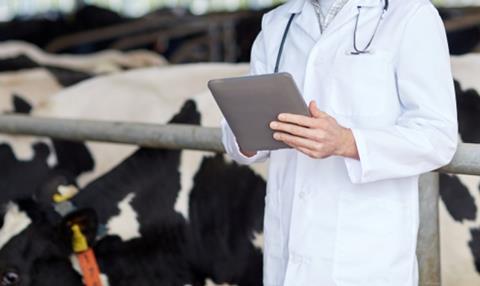The Food Standards Agency (FSA) has published a summary of responses to its consultation on early proposals for a future delivery model (FDM) for FSA-delivered Official Controls in the meat sector.

Earlier this year FSA gathered the views of stakeholders - including consumers, industry and third party assurance organisations, vets, internal colleagues and local authorities - on early proposals for reform.
The key proposals on which the consultation sought views were:
- Clearer accountability - allowing industry and the regulator to work more effectively together
- Tailored presence - FSA presence being tailored in line with the risk of individual premises or products, with resources weighted more towards premises that pose a higher safety risk
- Robust assurance scheme - a 'robust and clear' set of tools and techniques to ensure a high level of assurance across all stages of Official Controls delivery
- Digitised 'Real-Time' data by default - FSA and FBO (food business operator) collecting data once and using it multiple times for multiple purposes
- Transparent compliance - working with industry on how best to publish and share compliance information to increase standards and improve consumer confidence
- Modernised management - a more streamlined management function with digitised capacity to efficiently deploy resources
- Resource capability and capacity - a 'more skilled and resilient workforce' that could be versatile, flexible and will support the FSA's future ambitions.
Respondents to the consultation included the Agriculture and Horticulture Development Board (AHDB), the Association of Independent Meat Suppliers (AIMS), the Association of Meat Inspectors (AMI), Abattoir Sector Group (ASG), the British Meat Processors Association (BMPA), the British Poultry Council, the National Pig Association, National Craft Butchers and the National Farmers' Union.
Changes welcomed but more detail needed
FSA reported that responses from the industry were 'largely very supportive, welcoming change which was felt by some to be long overdue. However, many respondents felt that there was not enough detail in the proposals to comment fully and welcomed further information to inform definitive views, particularly on what the proposals would look like in practice.'
Clearer accountability, tailored presence and robust assurance were the most favoured proposals by industry, along with support for improvements to data collection and usage. The risk-based approach was also strongly supported, but with the emphasis that this should be proportionate and assessed fairly so as not to disadvantage smaller FBOs. Respondents were also keen to stress that any changes under the FDM should not negatively impact consumer trust.
Some suggested FSA should take the opportunity to incorporate measures to enhance animal health and welfare in shaping the FDM proposals: 'One example cited was to enable post mortem inspection (PMI) information to be fed back from the abattoir to the farm, to assist the producer with making improvements to animal health and welfare.'
Concerns raised about OVs and compliance data
There was particular concern shown about the requirement to urgently resolve issues around official veterinarian (OV) recruitment and retention, along with a need to improve the scope of the role and to upskill meat health inspectors.
Another area of strong concern was around the publication of compliance data. Some respondents felt that retails could use this data to 'apply unfair competitive levers' and that 'consumers' lack of understanding of compliance / audit data could lead to misconceptions, both of which would harm industry reputation and cause loss of business.'
Third party assurance organisations were generally supportive of the proposals, but called for animal health and welfare to be prioritised in decision making on any of the changes under the FDM.
FSA stated that it would consider industry's responses when shaping the further detail of the proposals and that more detail would be shared as the development work of the FDM progressed. The agency added: 'We are very mindful of impacts on industry and the importance of not disadvantaging a particular sector of industry.'
This story was originally published on a previous version of the Meat Management website and so there may be some missing images and formatting issues.















